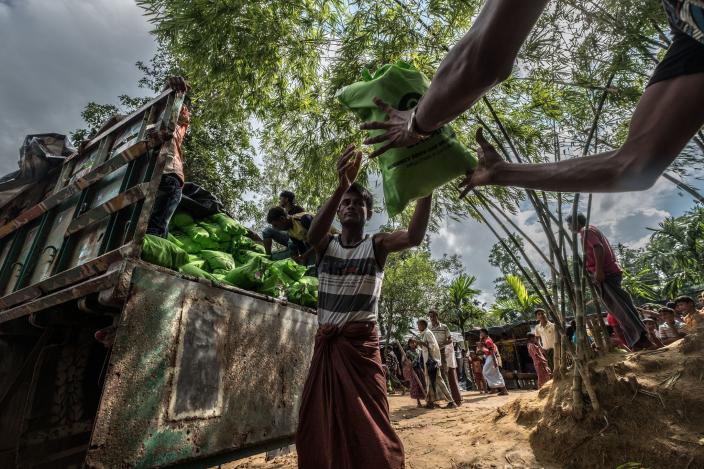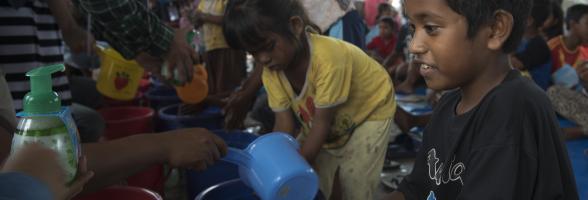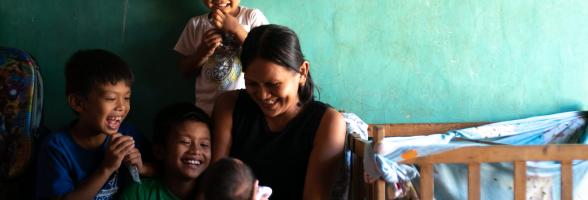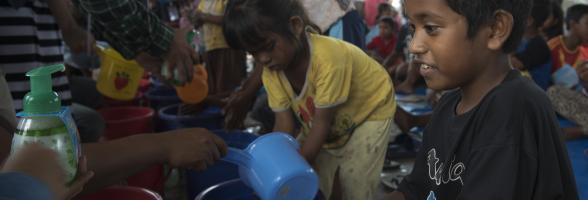This and other organizational changes have long been the subject of discussions in Oxfam. We know we must transform to be a more relevant actor and partner in the work to create a just and equal, more sustainable, more resilient world. This is what our new global strategy is all about, a strategy that we knew we will have to deliver with less resources.
Then COVID-19 happened, rapidly deteriorating our finances, accelerating the pace of change, and forcing us to make the toughest, most painful decisions we’ve ever had to take in much less time as we would have wanted—and these while colleagues are working harder than ever to prevent and mitigate the impact of the pandemic.
Soon, we will have to begin mapping out the phase out of offices in 18 of the 66 countries where we are currently present. The phase out will not happen tomorrow or in a few weeks. It will be gradual, done responsibly and with care for our staff, partners, donors and, most of all, the communities we serve.
Our compass as we forge forward is the commitment to help shape a pro-poor and pro-women global agenda post COVID-19, and to work tirelessly for women’s rights, equality, climate justice, and a new humanitarianism led by local humanitarian actors.
In Asia, we now have only a core team to run existing projects in Thailand and, despite the challenges, they continue to deliver a high-quality programme. In Sri Lanka and Tajikistan, we are supporting our teams’ transition into independent social enterprises that work for the same ideals that we stand for. In the Philippines and Indonesia, where Oxfam country teams have fostered strong partnerships and in contexts where there’s potential for creating regional movements, we are changing the way we work by helping our teams to explore how Oxfam may become a fully locally owned and registered organization, run by a national board. Cambodia, Laos, and Vietnam will be clustered and supported to become stronger and even more linked to the rest of Asia and the world. In Pakistan and Afghanistan, during the phase out, we remain committed to standing with people who fight for their rights and wel-lbeing, and for peace and progress in their communities and country. Our country programmes in Timor Leste, Myanmar, Bangladesh and Nepal will go from strength to strength, delivering more sustainable positive changes in people's lives.
And even after we have closed Oxfam offices, we will find opportunities to work with people’s movements in those countries. Over the medium and long term, we will continue to work with allies and networks wherever we can add value to saving and improving lives and building a more resilient, sustainable, equal, and just Asia.
Still, we change with a heavy heart knowing that we will be saying farewell to some colleagues, communities and partners who’ve poured blood, sweat and tears for the work that we do together. And change—especially when it’s hastened by a crisis—is never a smooth process and is difficult to absorb. We empathize with those who will feel unjustly left behind, remain committed to doing the best we can to support them and to improving how we move forward.
As we change, despite the pains and heartbreak, we remain optimistic. We are determined more than ever to help Asians fight off the current pandemic and other crises that face them, and I underline our unwavering commitment to work for the poor and powerless, women and girls, refugees, those hit by conflict and disaster, and others marginalized.
It gives me hope that with the COVID-19 crisis engulfing all of us, Oxfam has hit the ground running across Asia, supporting over 1.5 million people by working with nearly 100 different partners with lifesaving protection, food, water, and sanitation programmes. We’ve engaged over 50,000,000 people through media, social and community channels to promote safer behaviors to prevent the spread of disease. We’ve worked with governments and multilateral organizations to promote more equitable responses to benefit all Asians but especially the poorest and most vulnerable.
I believe in our staff and partners. Because of them, at the end of this—while smaller—Oxfam will emerge more focused, stronger, and responding better to the needs of Asia.



